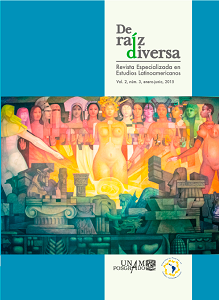Una historia sepultada: el Centro de Estudios Socioeconómicos de la Universidad de Chile, 1965-1973 (a 50 años de su fundación)
Contenido principal del artículo
Resumen
Entre 1965 y 1973, tuvo lugar una interesante experiencia de trabajo intelectual y construcción de pensamiento crítico en Latinoamérica, en el Centro de Estudios Socioeconómicos (ceso), de la Universidad de Chile. Su actividad se vio potenciada a partir de 1966 con la incorporación de varios académicos que se habían exiliado tras la persecución política desatada por los golpes de Estado y la intervención militar de las universidades en diversos países de la región. Con la llegada de Theotonio Dos Santos, Vania Bambirra, Ruy Mauro Marini, Emir Sader, Edimilson Bizelli, Tomás Amadeo Vasconi y -por motivos diferentes- André Gunder Frank, que se sumaron al grupo de jóvenes egresados de la Facultad de Ciencias Económicas reclutados por el sociólogo Eduardo Hamuy –entre ellos, Orlando Caputo, Roberto Pizarro, Sergio Ramos, Pío García y Cristóbal Kay–, fueron creados varios equipos de investigación, entre los que destaca el dedicado al estudio de las relaciones de dependencia en América Latina. El esfuerzo teórico desplegado por los investigadores del ceso, que dio algunos de sus más notables desarrollos durante el gobierno de la Unidad Popular, fue interrumpido –y ese Centro definitivamente clausurado– tras el golpe militar que derrocó a Salvador Allende.
Descargas
Detalles del artículo
Citas en Dimensions Service

De Raíz Diversa por Universidad Nacional Autónoma de México se distribuye bajo una Licencia Creative Commons Atribución-NoComercial-SinDerivadas 4.0 Internacional.
